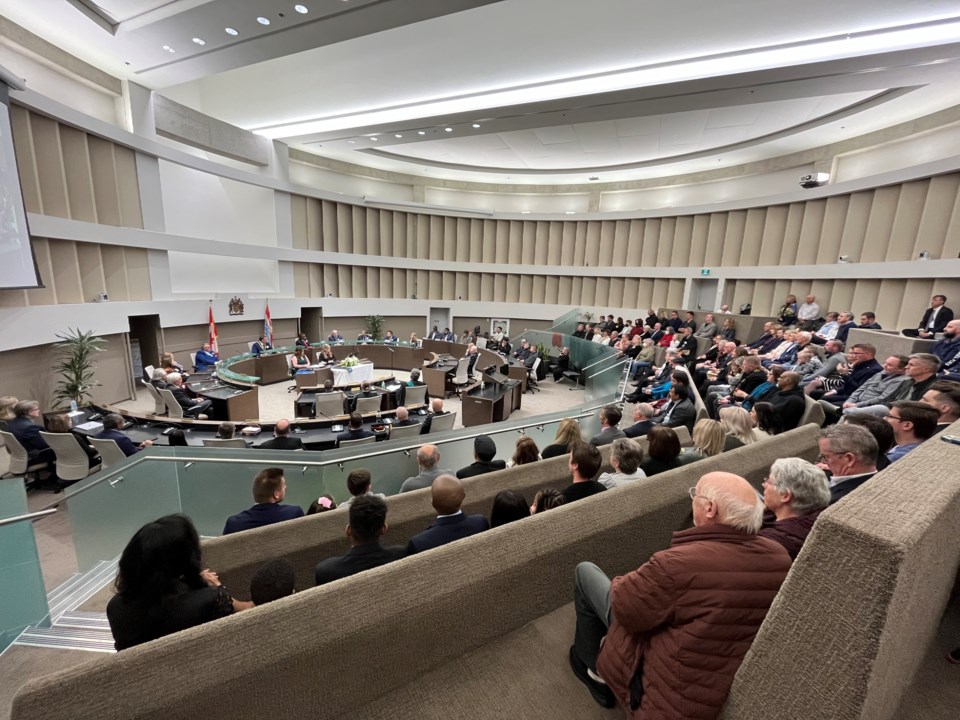Maybe sixth time’s the charm? That’s how many attempts have been made in the Ontario Legislature to bring in new rules to meaningfully discipline municipal councillors for serious misconduct, such as sexual assault.
Liberal MPP Stephen Blais has introduced three private members bills in recent years. All failed to become law, either because they were defeated in a vote or time ran out before the legislative session dissolved.
Doug Ford’s governing Progressive Conservatives have brought in three bills of their own.
The previous two failed to make it through third reading before elections, but they are trying again.
The Municipal Accountability Act, introduced in May, is now the subject of committee hearings across the province and the government has promised to have something in place by the 2026 municipal elections.
Currently, Ontario’s Municipal Act only allows the removal of councillors under limited circumstances, such as if they are no longer a Canadian citizen or have become an employee of the municipality.
Being charged or even convicted of a Criminal Code offence isn’t enough to get someone removed; they have to be serving a prison sentence.
A judge can also order a seat vacated if a council member is found to have had a conflict of interest, taking part in a discussion or voting on a matter where he or she stood to gain financially.
The Municipal Accountability Act would standardize the process for handling misconduct complaints across all of the province’s 444 municipalities and give councils the ability to remove someone from office.
Under the current rules, breaking a municipality’s code of conduct can only result in, at most, a temporary suspension of duties and subsequent loss of pay.
The new rules would still require the municipalities’ integrity commissioners to investigate and report on misconduct allegations. However, they would now be allowed to recommend the politician’s removal from office.
That recommendation would be forwarded to the Office of the Integrity Commissioner of Ontario, which would have to endorse it after review.
The final step would be a unanimous vote from the municipality’s council members who were not the subject of the complaint.
And therein lies the problem for many people.
Getting a unanimous vote from a municipal council, especially large ones, could be extremely difficult.
One council member may refuse to boot out a duly-elected representative on principle or a technicality.
Also, friendships form between councillors who work side-by-side for years, perhaps affecting someone’s ability to take such a drastic measure.
That was my experience in the last term of Barrie council where one council member was the subject of a harassment complaint from a staff member.
Despite meeting many hours behind closed doors and getting numerous reports from staff and outside parties, it proved almost impossible to get a majority of councillors to agree to take meaningful action, never mind reach a unanimous vote on anything.
Critics of the provincial bill point out that requiring all councillors to agree could mean a council member found to have sexually harassed staff or a colleague would continue to serve and work alongside them.
That concerns Emily McIntosh, a Barrie woman who has spent several years tirelessly fighting for legislation to ensure municipal councillors are held accountable for perpetrating violence and harassment.
She wants them placed on leave automatically upon being charged and removed from office if convicted.
Recognizing the difficulty of getting a unanimous vote from municipal councils, the founder of The Women of Ontario Say No recently sent a letter to municipalities, including Barrie, asking them to support efforts to have the final decision made by a panel of integrity commissioners at the provincial level.
Failing that, McIntosh asks that the threshold be lowered to a two-thirds vote of a municipal council.
She was recently denied the opportunity to speak to Niagara Falls city council, where one council member continues to take part in meetings despite being charged in May with assaulting his partner after an injured woman was discovered in his home.
“This is a critical element to ensure accountability, consistent with standards applied to police officers, firefighters and teachers,” she was quoted as saying in The Pointer, an online publication.
“It’s 2025. All women want is not to be killed, assaulted or harassed – by anyone, including their elected representatives. It seems pretty basic to me.”



